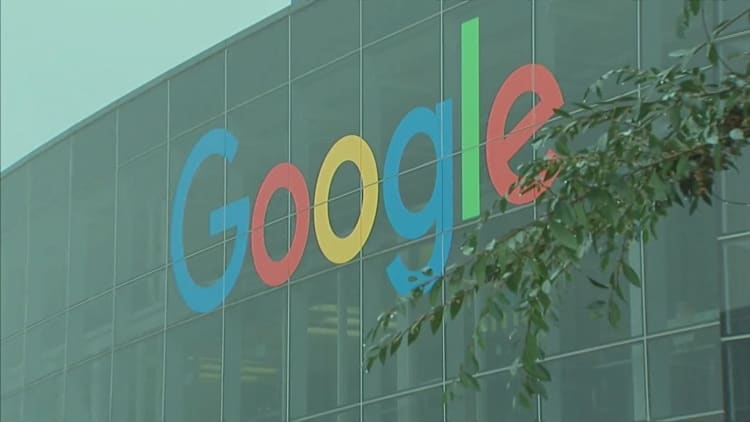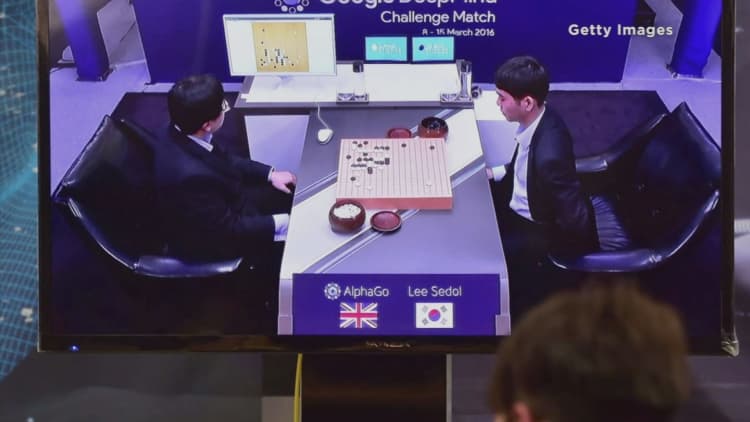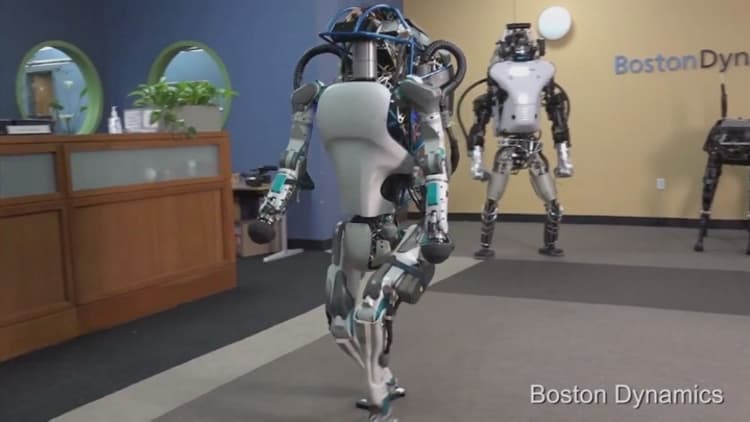


The next battle between humanity and artificial intelligence (AI) is taking place in a somewhat unusual setting: over a Chinese board game that has transfixed people for thousands of years.
On Wednesday, Google's AI system AlphaGo defeated Lee Sedol, one of the world's best players of the ancient (and incredibly complex) Chinese game of Weiqi, which is better known as Go.
AlphaGo, a computer program developed by Google DeepMind, managed to outwit Sedol in South Korea in the first of a five-game challenge match from Mar. 9 - 15, starting at 1:00 p.m. local time. Each game is expected to take four to five hours, with the tournament live streamed on DeepMind's YouTube channel.
Google DeepMind is offering $1 million in prize money for the winner. If AlphaGo wins, Google will donate the prize money to UNICEF, STEM and Go charities.
But the stakes are higher than a cash prize.
Go is one of the most complex games played at a professional level: Google claims that a game could have more potential moves than there are atoms in the universe. So a strong showing by AlphaGo would be a landmark in the field of AI.
"The winner here, no matter what happens, is humanity," Eric Schmidt, executive chairman of Google's parent company Alphabet, told a press conference in Seoul at the opening of the tournament on Tuesday.
"Humanity wins because the advances in artificial intelligence and machine learning will make each, and every other, human being in the entire world smarter, more capable - just better human beings."
On the surface, the game involves two players placing black or white stones on a 19-square-by-19-square board, while trying to capture their opponents' stones or secure empty spaces on the board.
The tricky part, Demis Hassabis, vice president of engineering at Google DeepMind, told the press conference, was that unlike a game of chess which, for example, has on average 20 possible moves from an average position, a game of Go could have more than 200 possible moves from an average position.
"It's been a longstanding challenge for the AI research community to try and master this game," Hassabis said.
Hassabis is the co-founder and chief executive of DeepMind, a neuroscience-inspired AI company that Google bought in January, 2014.
Mastering a game of Go requires both intuition and calculation. For an AI, Hassabis said, this entailed combining pattern recognition abilities with long-term planning.
The challenges in writing a program to play Go were two-fold, Hassabis said.
First, the sheer number of possible moves made brute-force search intractable. Second, the vast number of moves made it harder to write an evaluation function to tell the machine which side was winning the game and by how much.
"That is critical if you want a system to play Go well," he said.
Last October, AlphaGo took on three-time European Go champion Fan Hui at Google DeepMind's London office. In a closed-doors event, the AI system beat Fan Hui 5-0, making it the first computer program to beat a professional Go player.
The findings from the matches were published in the journal Nature.
"We have made many improvements to AlphaGo since October and the match against Fan Hui," Hassabis revealed. "We will have to see how they do against someone of the brilliance and creativity of Lee Sedol."
AI systems have taken on humans in the past. One of the most famous instances was in 1997, when IBM's Deep Blue famously beat former chess world champion Garry Kasparov. And in 2011, IBM's Watson AI bested two champions at the popular game show Jeopardy.
Google DeepMind's ambitions go further than just teaching AI systems to be good at board games, though.
Hassabis said board games provided a good testing ground for AI algorithms - sets of instructions that tell computer programs to do specific things -, with video and 3D games providing additional testing grounds, with the eventual aim of developing real world, problem-solving applications.
Bitcoin-based betting site BitBet has odds in favor of AlphaGo, as does crowd forecasting competition site Good Judgment Open.
Lee Sedol, meanwhile, told the press conference that he was keenly aware that Wednesday's tournament would be a milestone in the history of Go, as well as AI.
"I will do my best to play a beautiful and interesting game," he said.



